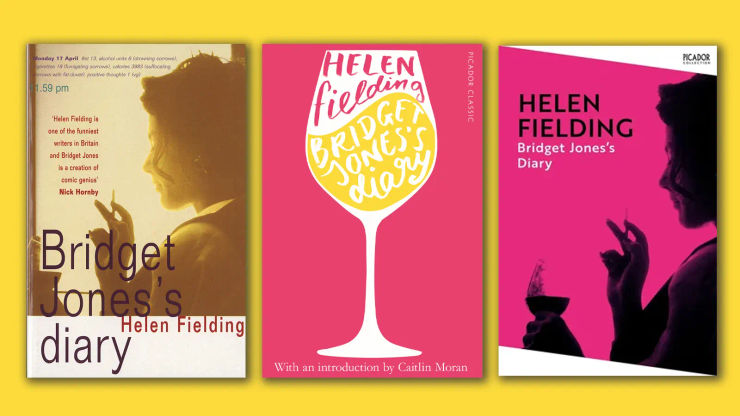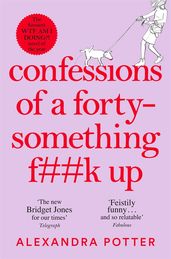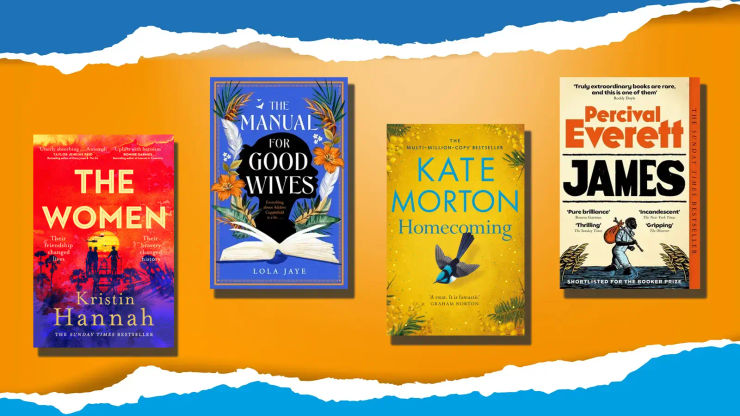'The perfect woman would not be fun, and she would not be truthful': the power of Bridget Jones’s Diary
Caitlin Moran on why she still loves Helen Fielding's hilarious tale of a pissed, chain-smoking London thirty-something.

2025 sees the release of the fourth Bridget Jones film Mad About the Boy and marks nearly thirty years since the publication of the original Bridget Jones’s Diary. In her introduction to the twentieth anniversary edition, Caitlin Moran explains why she still loves Helen Fielding’s hilarious tale of a pissed, chain-smoking London thirty-something.
Bridget Jones is part of the character pantheon alongside Jo March, Elizabeth Bennet, Jane Eyre, Scarlett O’Hara, Becky Sharp, Pippi Longstocking and the Wife of Bath – women and girls whom one can imagine being set into any time, or location, and being just as entertaining, companionable and prone to amusing, yet ultimately triumphant, misadventure as they were in their original centuries.
There is a school of feminism, of course, which decries the misadventures of female characters. Why must Bridget obsess about her arse so much? Why must she fall for bad men? Why is she so self-absorbed? Could she not spend these books living an enlightened, guilt-free, empowered existence – engaging only in political activism, literary discussion of restrictive gender-normative tropes, and good works for the poor? What is the point of feminism if Bridget is constantly counting her calories whilst chainsmoking out of her mother’s spare-bedroom window, and banging sexy ass-hats? Whither sexual equality?
This ignores the fact, of course, that true equality is the ability for women to be as fat, dim, delusional, buffoonish, irritable, self-serving, lack-lustre, idiotic and entertaining as men. Feminism needs the female equivalents of the ridiculous, glorious Mr Toad, Flashman, Basil Fawlty, Zaphod Beeblebrox, Adrian Mole, Ignatius J. Reilly, Falstaff and George Costanza far more than it needs another woman effortfully, and unhappily, trying to live another deserving, upstanding, perfect and dull life, like some kind of angry, teetotal, hectoring nun. A woman dedicated to being an example.
‘Bridget is a palpable, living thing. You see her everywhere – in bars; panicking in changing rooms; struggling with a dull career; staring at the calorie-count on the back of ready-meals in M&S’
And besides, that perfect woman would not be fun, and she would not be truthful. For Bridget is a palpable, living thing. You see her everywhere – in bars; panicking in changing rooms; struggling with a dull career; staring at the calorie-count on the back of ready-meals in M&S; trying to read The Beauty Myth on the Tube, but wishing it was Grazia; counselling weeping friends; falling over; snatching drinks off tables on the way out, and just trying to find some fun – some glorious, hooting fun – in this busy, mad, unhappy, racing world.
To dismiss the chronicling of this kind of girl as somehow meaningless, or irrelevant, does us all a grave disservice – for it dismisses the bulk of most modern women’s lives. It says they are not worth recording, or having narratives woven around them. That their sorrows, and joys, and jokes, are not worth the ink. And it severely underestimates the power of a novelist to be able to do that most useful, elegant yet difficult of things: to write about the almost-unnoticeable everyday so beautifully, it becomes one of the most well- known stories of our time.
‘Fifteen million women found their stories here, and nowhere else’
There’s a reason why Bridget Jones’s Diary has sold fifteen million copies, and it’s not solely because it’s incredibly quotable and classically funny. It’s also because fifteen million women found their stories here, and nowhere else.
Over the years of reading and re-reading Bridget Jones’s Diary, I’ve found myself aligning with a different character each time. On the first reading I was, of course, Bridget – I was twenty-two, in London, obsessed with literature, self-improvement and the urgent communiqués from my vagina. I, too, considered a day of only eighteen cigarettes ‘v.g.’. I solidly applauded Bridget’s hatred of communal changing rooms, and many of my 2am diary entries read, ‘Argor sworeal brilleve with Shazzan Jude. Dun stupid care bout Daniel stupid prat. Feel sicky though. Oops.’
In time, I suspect, I will end up sympathizing with Bridget’s mother – running away to Africa, wanting everyone I love to have a durable wheeled suitcase, and mortifying my own daughters.
But currently, Shazzer’s my girl. Boozy, ranting, loyal, strident feminist Shazzer. It is under her banner that I frequently launch into an impassioned rant about how under-lauded Helen Fielding’s sharp-eyed, wry social commentary is. For whilst people honk endlessly about Tom Wolfe coming up with one descriptor, once, of a wellknown archetype – Bonfi re of the Vanities’ ‘social x-rays’ – a phrase which, by the way, I have never heard anyone use in day-to-day conversation – Fielding comes up with ‘Singletons’, ‘Smug Marrieds’ and ‘Urban Family’, plus the useful term ‘fuckwittage’, and the best ever description of being worried about dying alone – ‘being found three weeks later half-eaten by an Alsatian’ – all of which have become standard terms.
But of course, because these are phrases uttered by a slightly chubby middle-class girl knocking back Pinot Grigio, they don’t get wanked over in a documentary hosted by Alan Yentob. That is true fuckwittage. But when you’re a ground-breaking, iconic phenomenon, who cares about things like this?
Bridget Jones certainly wouldn’t – she would look around the second decade of the twenty-first century, and see that, currently, this is a world filled with her comedy daughters.
For while she was a bold, but lonely, trailblazer in 1996, currently, the funniest people in the world are women – women playing characters who are all, decidedly, post-Bridget. Tina Fey’s food-obsessed singleton Liz Lemon in 30 Rock, Amy Schumer’s boozy Trainwreck, the chaotic Broad City girls. Lena Dunham’s Hannah Horvath in Girls – always with the bad boyfriends, and the self-help books, and the bum. Bridesmaids.
The piping, slightly posh, slightly slurred tones of Bridget Jones – quoting Austen, whilst dancing to Madonna – turned out to be a quietly revolutionary tract. This was a voice that said, ‘Your supposedly ordinary life – your supposedly ordinary diary – is actually a book; a movie; a story; a thing. It is OK. It is OK to be a girl like you. Other girls out there will want to hear you. And, most importantly, the greatest way to live your life – the greatest power you have – is not to be thin, or in love, or in good shoes, or rich. It is to be funny.’
Taken from Caitlin Moran's introduction to the 20th anniversary Picador Classic edition of Helen Fielding's Bridget Jones’s Diary.
Bridget Jones's Diary
by Helen Fielding
A dazzling urban satire of modern relationships?
An ironic, tragic insight into the demise of the nuclear family?
Or the confused ramblings of a pissed thirty-something?
As Bridget documents her struggles through the social minefield of her thirties and tries to weigh up the eternal question (Daniel Cleaver or Mark Darcy?), she turns for support to four indispensable friends: Shazzer, Jude, Tom and a bottle of chardonnay.
Welcome to Bridget's first diary: mercilessly funny, endlessly touching and utterly addictive.
You may also like
Confessions of a Forty-Something F##k Up
by Alexandra Potter
'The new Bridget Jones' – Celia Walden, Telegraph
Meet Nell. Her life is a mess. Having left a great job in New York to start a new life in California with the man she loves, she's now back in London under a literal and metaphorical cloud. Unemployed, living in a stranger's spare room and having to compete with children, careers and a wealthy usurper called Annabel for the attention of her friends, she starts up a secret podcast as an outlet for her entertainingly expressed but deeply heartfelt frustration. Through this, alongside an unexpected friendship with octogenarian widow Cricket, things finally start to look up.




